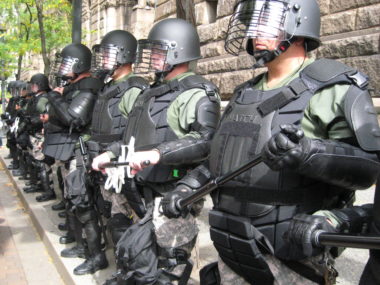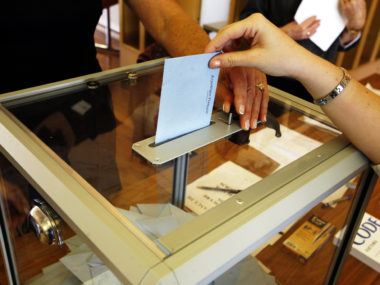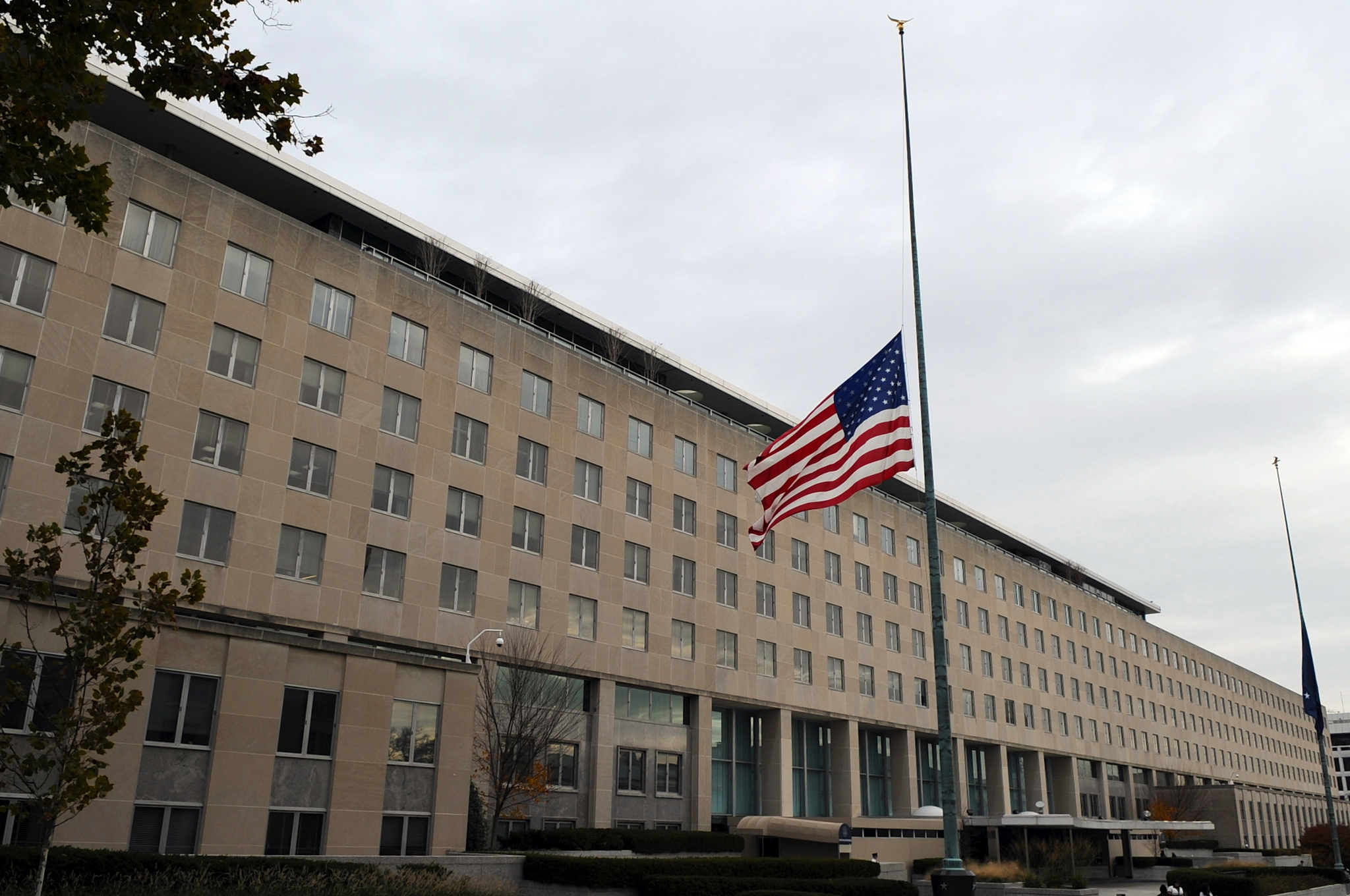By Rachel Epstein and Donald Abenheim for Denver Dialogues.
The election of Donald J. Trump to the presidency of the United States presents some clear parallels with populist movements in Europe (see Martin Rhodes’ piece on Trump, Brexit, and Nationalism). We examine some of those parallels here with Professor Donald Abenheim of the Naval Postgraduate School and author of Rettet den Staatsbuerger in Uniform: Gedanken zu einem deutsch-amerikanischen Problem, a series of essays on military professionalism and contemporary conflict.
Extremist parties in countries such as France and Austria celebrated Trump’s victory as a potential harbinger of a broader populist transformation. But at least some members of the “Alternative for Germany” cited the impossibility of such a figure rising to prominence in Germany, given the vulgarity of the American campaign. The Alternative for Germany (Alternative für Deutschland, AfD) is a right-wing, populist party in Germany noted for its Eurosceptic and anti-immigrant positions. The AfD has been building momentum in local, regional, and EU parliamentary elections since 2013 and hopes to cross the 5% electoral threshold to enter the German parliament in 2017. We examine the party’s origins and its significance to Germany, Europe, and the Transatlantic relationship.
EPSTEIN: Does the AFD represent a major change in German politics? Or is the AfD just a fringe party that will likely disappear when and if the refugee crisis is fully resolved or contained?
ABENHEIM: The AfD embodies a revival of German nationalism at the expense of EU, NATO, and US world leadership, despite German prosperity and strength in a united Europe. The refugee crisis in 2015-2016 made into reality the propaganda of blood and soil struggles that animate the party’s world view. That said, AfD has been thrust forward just as much by the single European currency, Gerhard Schröder’s economic and welfare reform of 2003, and the twists and turns of globalization and their effects on the German social market economy.
Germany is no longer endowed with a stable and ideologically placid form of government, despite general prosperity beyond the dreams of anyone in the year 1959. The onset of perennial economic stagnation – coupled with the endurance of grand coalition cabinets – has promoted political opposition from what has normally been the extremes. In the last four years of AfD’s ascent to prominence, the shadows have darkened over a Europe faced with a wrong-headed austerity policy in the clutches of the Euro crisis, the rise of Russian revanchism, as well as jihadist terror assaults, all of which have reinvigorated an old, integral nationalism with resonances of the epoch 1919-1939.
The refugee crisis neither created AfD, nor is the party likely to vanish entirely even if the bulk of refugees presently learn to speak German and join local choirs and football clubs. In the same vein, President-elect Donald Trump enraged and weaponized an electorate that will resist demobilization and will likely radicalize even further if their demands in this election are not met. The AfD and parties like it present an enduring challenge to liberalism, not just a fleeting disenchantment with economic and social marginalization.
EPSTEIN: Who in the German electorate is supporting the AfD and why?
ABENHEIM: In the AfD’s initial phase from 2012 until 2014, the leadership of the party drew its numbers from disaffected educated middle-class men. These were West German critics of Merkel’s CDU/CSU/SPD grand coalition, which in their view had abandoned conservatism in favor of consensus with ideologically repugnant multi-cultural and gender neutral forces on the left and supranational technocrats and vultures of Wall Street or Singapore bankers on the right. As if this educated and well-heeled critique was not enough, fate swiftly shoved Europe from the Greek sovereign debt crisis to Crimean annexation and, then, to the Syrian refugee columns from the Aegean to Burgenland in the east of Austria along the Danube. The profile of the AfD voter then changed with the radicalization of German and European politics. The appeal broadened across the political spectrum to gather from left and right.
Early on, AfD mostly drew the votes of males not only from what were once called “die erwuenschten Kreisen” (“desired circles”) but also from the working class, those who felt endangered by open borders, by the Polish plumber or by the Slovak production line workers at Volkswagen in Bratislava. The AfD found notable success in the five new federal states (of the former East Germany), rising above the all-crucial five percent mark to enter the government, where it took votes especially from the heirs of the old left. In 2014, a study by the social science institute Forsa found that the party at the time drew its members from both the old elite and middle strata of German society, and thus could not simply be equated with traditional right wing extremists.
EPSTEIN: Does the AfD channel German frustrations with the conventional narrative of German war guilt?
ABENHEIM: The AfD’s rejection of the most fundamental tenets of West German statecraft and political culture (the primacy of consensus, a policy of reconciliation across borders, yes to international organizations, multilateralism and Transatlanticism) since 1949 is not the same, per se, as the kind of batty right-wing language of former times that claimed that WWII was imposed by the west on the Third Reich. This radical right-wing canard was most recently enshrined in a sharply revisionist book on the causes of WWII by an ex-Bundeswehr general, Gerd Schulzte-Rhonhof, who somewhat channeled AJP Taylor but also ex-Nazis in the FRG of the late 1950s. This idea has operated on the fringes for a long time, but is surely not explicitly a plank in the AfD platform. Nor are such ideas embraced by the overwhelming bulk of persons in national and cultural life.
What is core to AfD, however, is the celebration of German national feeling – the love of fatherland as well as an open tendency to dismiss most foreigners, but especially Greeks, Turks, Arabs, Americans, Israelis and others seen as proxies for multi-national and remote alien entities of the European Union and NATO. To the extent that the phrase “political correctness” becomes the butt of vitriol among the AfD, there is an implicit rejection of German statecraft, pacifism, and anti-militarism of the past two generations with the Hans von Seeckt tilt to Moscow, the ahistorical celebration of Bismarck over Helmut Kohl, a new kind of cult of power of Germany’s Mittellage (central position), and above all, the revival of a kind of third path rhetoric invested in the concept of Festung Europa (Fortress Europe) as well as a resistance to the US National Security Agency and to a Silicon Valley that at times has resonances of the anti-establishmentarianism of Martin Luther and/or Carl Schmitt. Needless to say, social media originating in California offers the medium for these nationalist messages from AfD alt-right agitators. The party does not have a lot to say about defense policy in a specific sense, but the AfD rightly wants to reintroduce conscription in the vein of the school of the nation and also because the Bundeswehr has, indeed, shrunk in size to an alarming degree, made more evident by the refugee crisis and the mobilization of troops to support civil authority in Bavaria. Such policy ideas hardly constitute a rejection of the generalized understanding that the Third Reich began an aggressive war that ended in genocide. Nevertheless, the nationalism embraced by the AfD and by others is an assault on the core ideas that have undergirded a peaceful and prosperous Europe since 1945. The construction of barriers and their reinforcement by paramilitary police and armies (as in Hungary and even in Austria) represent a rupture with the constants of the past six decades.
Donald Abenheim is an Associate Professor at the Naval Postgraduate School. The views expressed here are his own and do not represent the position of the US government or the US defense department. You can find a full transcript of the interview here.







